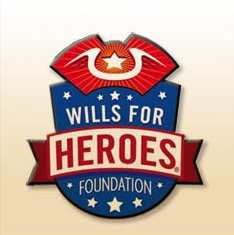Wills for Heroes project protects those who protect others
First responders, firefighters, police officers and other emergency personnel who protect citizens from natural disasters and violent crime are called on to put their communities’ safety before their own. Yet more than 80 percent have not prepared even simple wills, according to the national Wills for Heroes project.

Wisconsin Wills for Heroes, the State Bar of Wisconsin and the UW Law School’s Pro Bono Program are working to fix that. As part of the national program, the bar recruits volunteer attorneys, paralegals and notaries to prepare wills, free of charge, for first responders and their spouses. UW law students, volunteering through the Pro Bono Program, serve as witnesses and shadow practicing attorneys throughout the entire process.
When a group of responders requests assistance with estate planning, Jeff Brown, the State Bar pro bono coordinator, arranges for the volunteers to travel to their facility. Students sit in on the back-and-forth between clients and attorneys, which gives students an opportunity to observe some of the practical questions that arise when preparing a will.
“After shadowing the Wills for Heroes attorney, I have a better grasp of some of the processes involved in estate planning, like drafting and client counseling, than I would have gotten from a textbook,” says Samantha Overly, a second-year UW law student who recently participated in a clinic.
Elizabeth Longo, another second-year student, agrees, and says she also learned the importance of attention to detail through her Wills for Heroes experience.
“The Wills for Heroes experience contributes to the law-in-action philosophy we talk about in class. This is a real-world setting, involving critical legal documents that real people need.”
Samantha Overly
“Certain processes that we’ll do over and over again for future clients might seem commonplace or standard to us, but we need to make sure clients understand the terms of these documents,” Longo says.
Brown says he’s pleased about the continued student interest.
“Wills for Heroes is a good chance for students to meet practicing lawyers and get out into communities to see how estate law is handled,” Brown says. “They get to see how much local first responders appreciate even a little bit of their assistance and time.”
Brown adds that law students who do pro bono work often become attorneys who do pro bono work. Many UW Law School alumni have volunteered their services to Wills for Heroes, including project co-coordinator Wes Taylor, a 2009 law graduate.
And for students, the chance to apply legal theory to practice is transformative.
“The Wills for Heroes experience contributes to the law-in-action philosophy we talk about in class,” Overly says. “This is a real-world setting, involving critical legal documents that real people need.”
Students who would like to learn more about upcoming Wills for Heroes clinics should consult the Pro Bono Program website.
—Tammy Kempfert
Tags: law, public safety, student life



